Max Cohn's Centrella Food Store
For more than half a century, Max Cohn’s grocery store was a key Lake Forest institution, providing residents with groceries seven days a week, 362 days a year. From 1913 to 1968, his small grocery was a primary source of fresh produce and canned goods for the growing town.
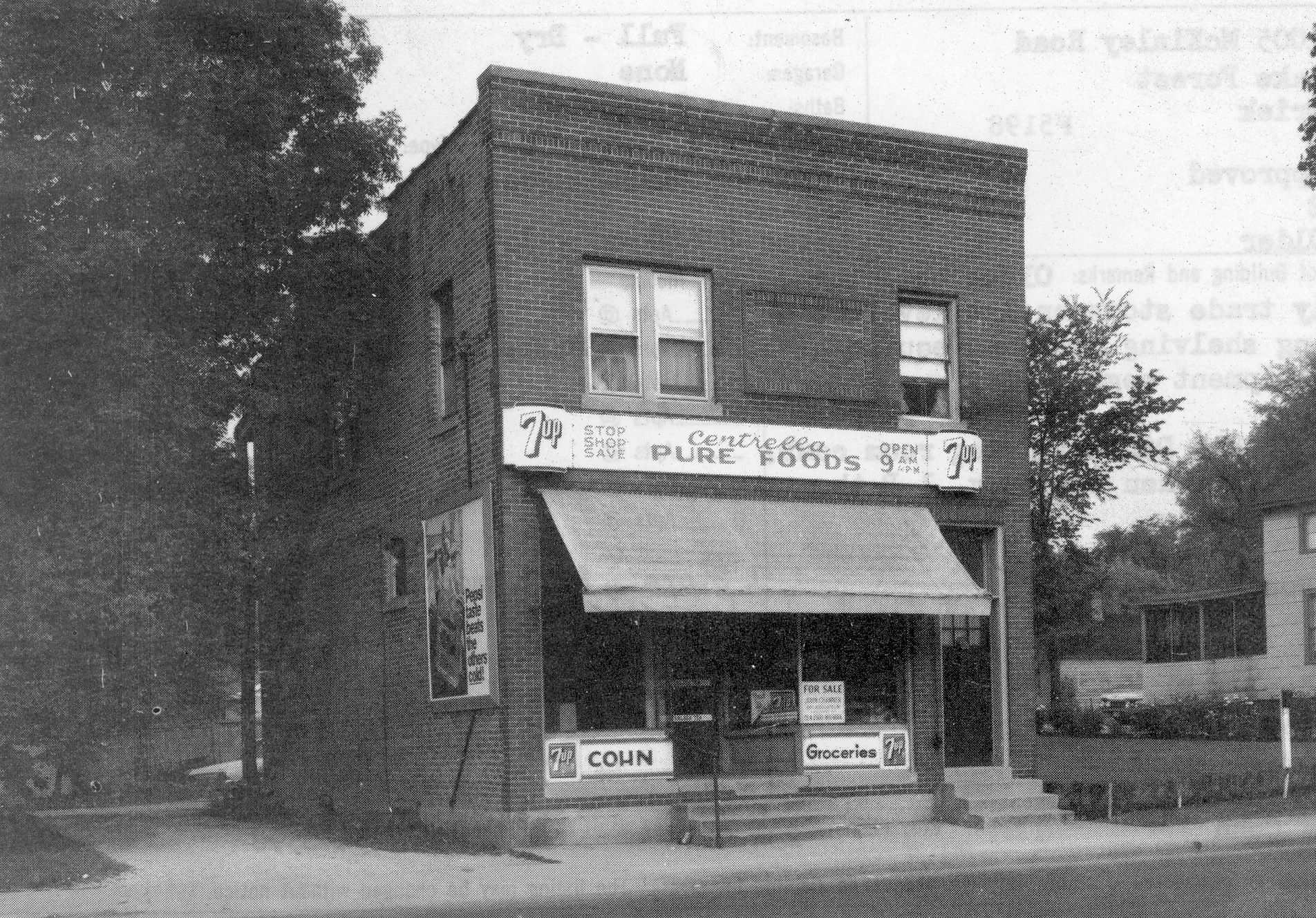
Max Cohn emigrated from Russia in 1898, at age eleven, arriving with his mother to join his father and brothers in Waukegan. There he finished his education (completing first through fifth grade in one year) and began work in a plumbing equipment factory. He eventually earned enough money to buy a horse and wagon from which to sell fruit instead. He moved to Lake Forest in 1913 with one of his brothers, and shortly thereafter opened his first business, the aptly named Cohn Brothers Grocery Store.
In 1914 he met and married his wife Lena, recently arrived from Latvia. The future Mrs. Cohn had completed eight years of secondary education in Latvia, and spoke four languages—none of which was English. She had come to the U.S. to visit her sister in Waukegan, but ended up living in Lake Forest for the rest of her life.
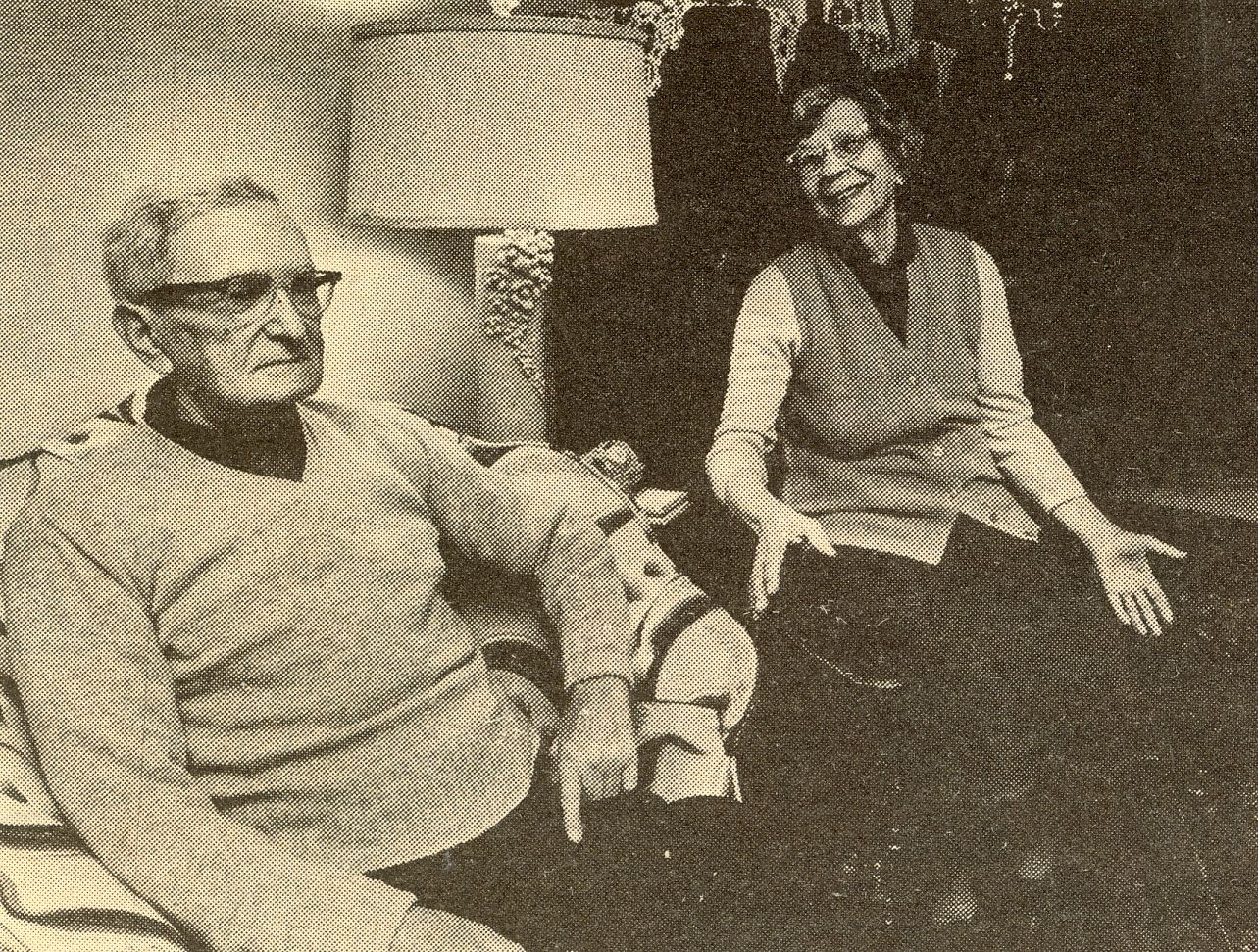
Max Cohn’s brother left the business after a few years, and Max created a new store, Max Cohn Groceries, in 1919. The building stood at 1005 McKinley Road, just down the street from the couple’s eventual home at 265 E. Woodland.
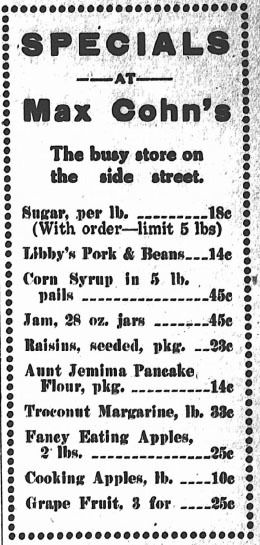
The store remained open for five decades, and was closed only on the Jewish high holidays and Lake Forest Day. As recorded in the Lake Forester, their daughter Zelda recalled that even after the store had closed for the day, Mr. Cohn would open it if anyone came to the door in need of something. And the work wasn’t just his: for as long as the grocery was open, Lena Cohn was helping her husband to run it. When they opened in 1919 she was there with their seven-week-old baby, ready to work. When they were old enough, the couple’s three children also helped in the store.
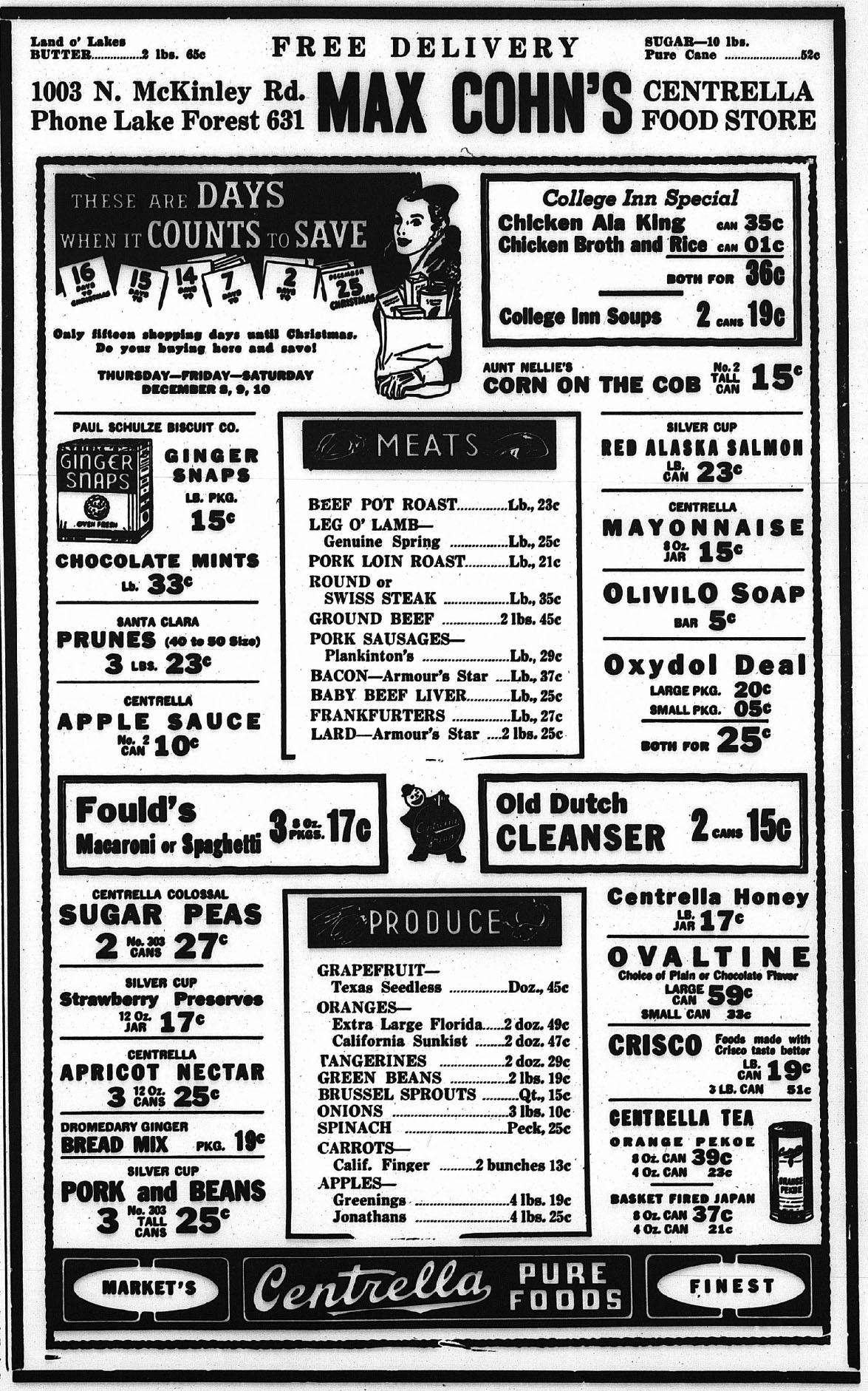
It was inevitable, though, that the store would eventually be driven out of business by competition from growing chains like A&P and Jewel and National. Its most profitable years had been those between the two world wars. The store closed in 1968, and the building was rented to Carlos Amidei. He opened Carlo’s Tailor Shop, which remains there to this day.
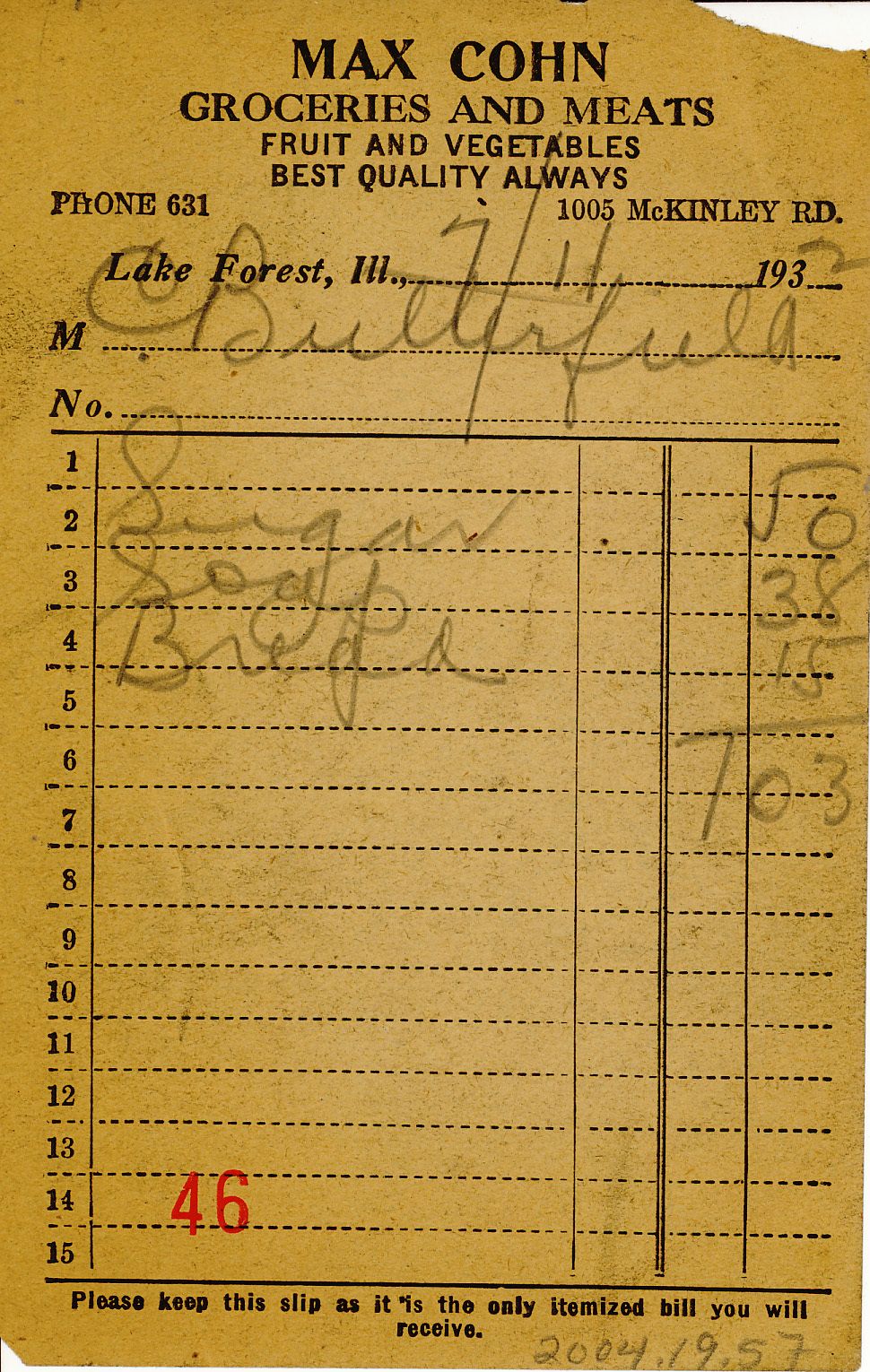
After selling the store, Mr. Cohn worked as a crossing guard at Cherokee Elementary School. He finally retired in 1975. Mrs. Cohn died in July 1976 at the age of 85, and Mr. Cohn died in April 1981 at 93. They were survived by their three children. The youngest, Ruth Harmatz, died in 1997, and her older sister Zelda Klass followed in 2000. The last of the children, George, worked as a professor of electrical engineering at California State University at Fullerton.